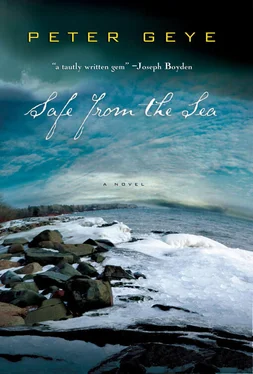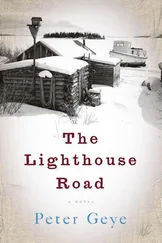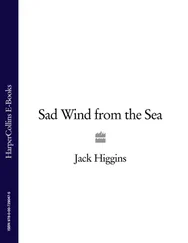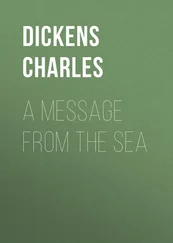“So how are you making it go?”
“I guess I have a mind for the maps.”
And because Olaf seemed interested, Noah elaborated. Some of the maps were three or four hundred years old and from as far away as the Horn of Africa. He described the beautiful Latin and French words he had such trouble translating, the beautiful script they were written in.
Olaf, looking even more dubious, said, “Say I wanted to buy one of these maps, what would it set me back?”
“You could spend a hundred bucks, you could spend ten or twenty thousand.”
“For an old map that couldn’t get me out the front door?”
So Noah explained again how they were less maps than collectibles, or, he repeated, works of art. Not to be used, as his father said, for getting out the front door but for admiring on the wall in your billiard room, to ogle with your country-club friends over twenty-year-old scotch.
Olaf said, “I’ll take my atlas and gazetteer.”
“When was the last time you needed an atlas?” Noah said, remembering his father’s instructions for finding the house.
“Let’s just say one won’t be necessary to find lunch. You hungry?”
OUTSIDE THE MANITOU Lodge hay bales and cornstalks and pumpkins had been set out for Halloween. There were a dozen pumpkins, all half eaten, a feast for the deer; their tracks were all over the mud. Three cars were parked in the lot, but inside, the dining room was deserted.
It was a moderately sized room with grand ambitions. The walls were paneled with dark, stained wood, and the vaulted ceiling supported four chandeliers that aspired to some kind of elegance but failed. A rippling, knotted pine floor glimmered, polished to a shoe-shine brown. Along one wall a colossal fireplace with a mantel as big as a canoe loomed over the deep hearth. Hanging over the mantel a moose head and antlers spanning four feet surveyed the room with glass eyes. On either side of the fireplace black-bear skins hung like paintings. Above the wall of windows that faced the highway, a dozen fish — chinook and brown salmon, steelhead, northern pike, walleye — hung mounted on elaborately carved and lacquered pieces of wood. The tables were sturdy and unvarnished and covered with paper place mats and lusterless silverware. The three waitresses wore black skirts and white blouses. One of them directed Olaf and Noah to a table by the window and gave them menus.
“Our soup of the day is Lake Superior chowder,” she said, filling their water glasses. She switched a peppermint from one cheek to the other and asked if they had questions.
Olaf said, “Give me the chowder. And coffee.”
Noah smiled and asked, more politely, for the same. The waitress put her pencil behind her ear, collected their menus, and walked toward the kitchen.
“Once upon a time you would have ordered a bottle of suds with your chowder,” Noah said.
“A bottle of suds? Times you’re talking about I’d have skipped the chowder altogether, ordered four boilermakers over the noon hour, and called that lunch.”
“No more boilermakers?”
“No more cigarettes, either.”
“Since when?”
Olaf ran his hand through his beard. He appeared reluctant to speak. “On the way back from your wedding I stopped in the Freighter for a pair of bourbons before finishing my drive up here. Twenty straight hours I’d been behind the wheel, thought I deserved a nip.” He paused, ran his hand through his beard again. “Met a couple of the old boys. We had a high time of it. A high time.
“The next morning I woke up in the truck. Couldn’t see a thing, the windows were all rimed from a night of snoring. I mean, they were completely fogged over. I had no idea where I was until I stepped out of the truck.” He smiled, looked almost as if a punch line were in the offing. “I was parked in front of the old house up on High Street. Hadn’t lived there in what, three years?” His smile vanished. He paused to look Noah in the eyes. “One of my bright shining moments. Enough was enough.”
“Just like that?” he said.
“Never a drop since.”
“I didn’t know people could quit drinking like that.”
Olaf merely raised his shoulder to his ear and closed his eyes for a moment. “I guess they can,” he finally said. “At least I did.”
“Do you miss it?”
“Not the booze, but I’d smoke a hundred cigarettes a day if they weren’t such hell on me.”
“What’s that?” Noah asked, pointing at an envelope on the table.
Without a word Olaf slid its contents onto the table. There were two dozen or more photographs sheathed in plastic. Olaf took one of the photos from the pile, set it down on the place mat, and wiped an imaginary layer of dust from it. He looked at Noah from over the top of his glasses — big, black-rimmed bifocals that he’d pulled from the pocket of his flannel shirt. “I guess this is what I wanted to show you.”
The waitress interrupted them with their soup. Noah thanked her.
At the same moment, as if they were one man in a mirror, they moved their soup aside. Olaf said, “Anyway.”
Noah sat dumb as his father took one and then another of the photographs from their plastic wraps. The first, a black-and-white snapshot of five men standing on the main deck of the Ragnarøk and two others suspended over the side, one in a bosun’s chair, the other on a rope ladder, looked like something out of a Life magazine pictorial. Printed on heavy Kodak paper, it had faded to sepia. Of the seven men Noah recognized three: his father, Jan Vat, and Luke Lifthrasir. They all wore scowls on their faces and looked identical in dress, wearing black wool caps, three-quarter-length peacoats unbuttoned to the waist, gray trousers cuffed at the ankle, and thick-soled black boots. The ship’s bowline was attached to a harbor cleat, sagging heavily under the weight of icicles. The ship, as the unmistakable block letters of his father’s handwriting on the back of the photograph said, was wintering up.
On the deck behind the men, the riveted hatch coamings and covers and the hatch crane were glazed with ice. The two men hanging over the side of the ship chiseled at a layer of ice. The men on deck all wore that expression so fixed in Noah’s memory — they looked caught between humor and tragedy, as though they were thinking, simultaneously, that they were elated to be home but craved leaving again, too.
In the steely background of the picture, a million shades of gray blended into the harborscape: the cone-shaped piles of taconite and limestone, the enormous cranes and rail tracks, the rail cars steaming with coal heaps. Fences, barbed wire, wooden pallets. The crisscrossing power lines and ten-story-tall grain and cement silos. A squat tug steaming through snow flurries. Ice. And, enveloping all of it, smoke from a thousand stacks and steam whistles.
Noah looked up from the picture and saw his father staring out the restaurant window. Noah thought of saying something but looked back down at the picture instead. In the background he recognized a big part of his boyhood. Driving into downtown Duluth just two days earlier he’d felt similarly transported in time. In his exhaustion he’d chalked it up to the depressive autumn mood that seemed to have settled on the city like the fog. But now, seeing the same place and thing in a different time and in different hues, he knew that he had mistaken fatigue for the nature of the city, not autumn’s coming on.
He thought back to his boyhood and the ships, his father’s ship especially — his third, actually, the storied Rag . The Superior Steel Company had a fleet of fourteen ore boats, and though there were many distinctions in their size and capacity, in their age and shape, each of the ships was distinctly superior —as they were known across the lakes — as well. Just as the Pittsburgh Steamships wore their tin or silver stacks, so the Superiors wore their black hulls and white decking. And emblazoned on the stern and port side of each ship’s nose the diamond and S.S.C. logo of the fleet looked like an opened serpent’s mouth. Though any ship from any fleet or port of call stirred something like awe in Noah — even now but especially as a boy — the ominous, serpentine Superiors ruled his imagination.
Читать дальше












